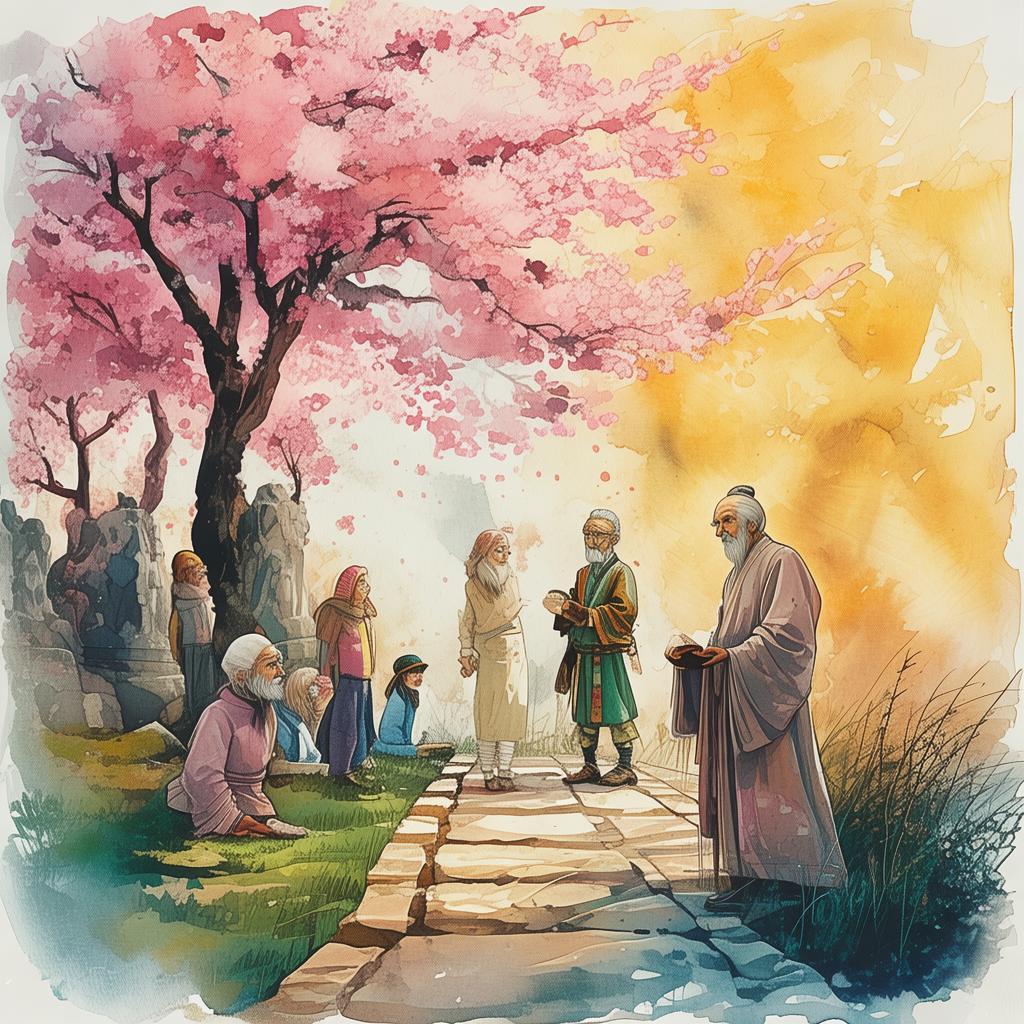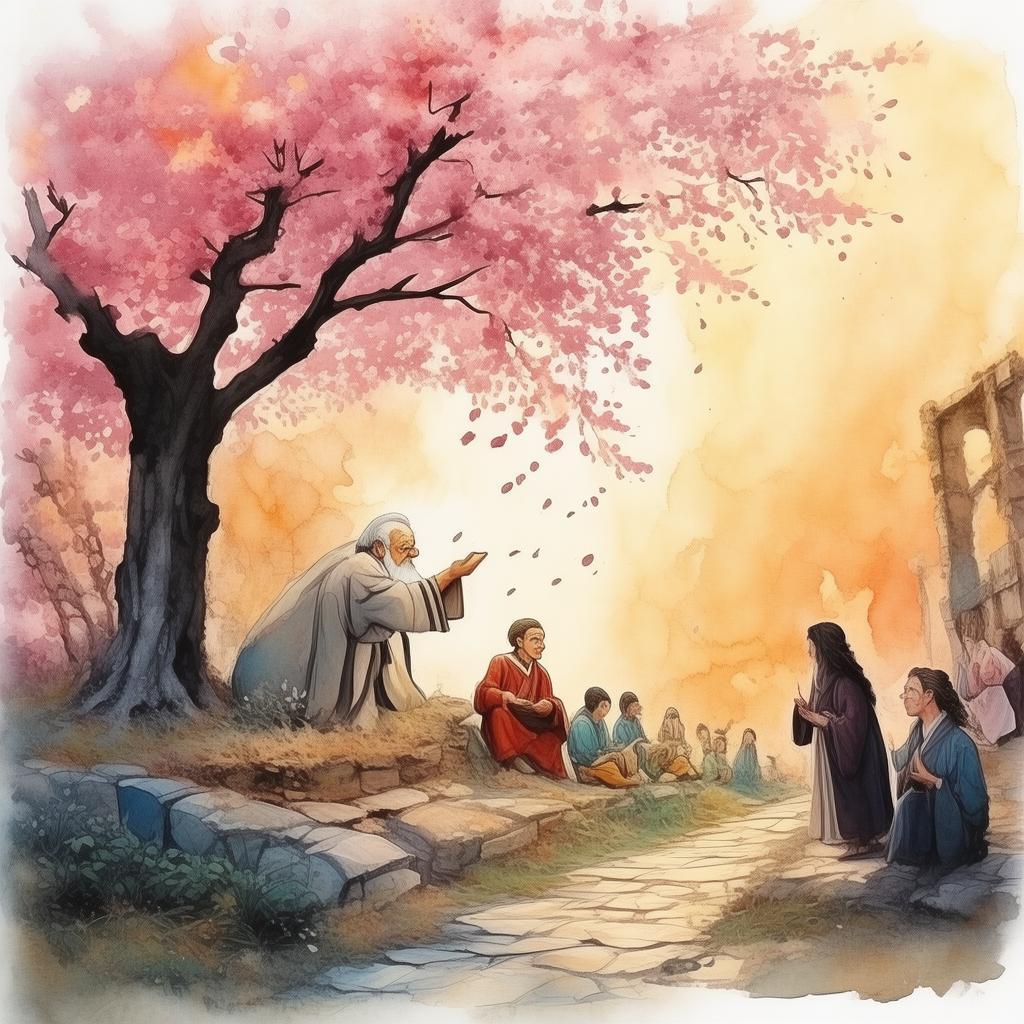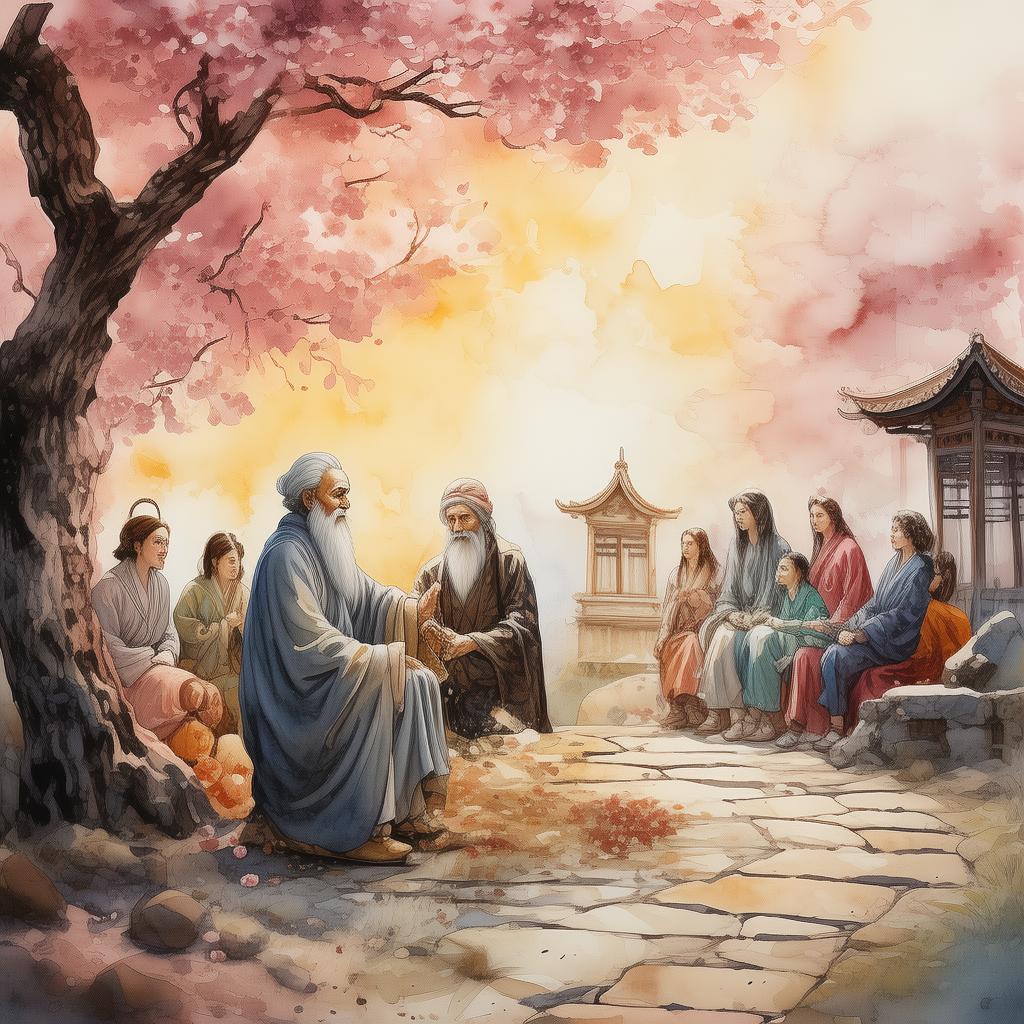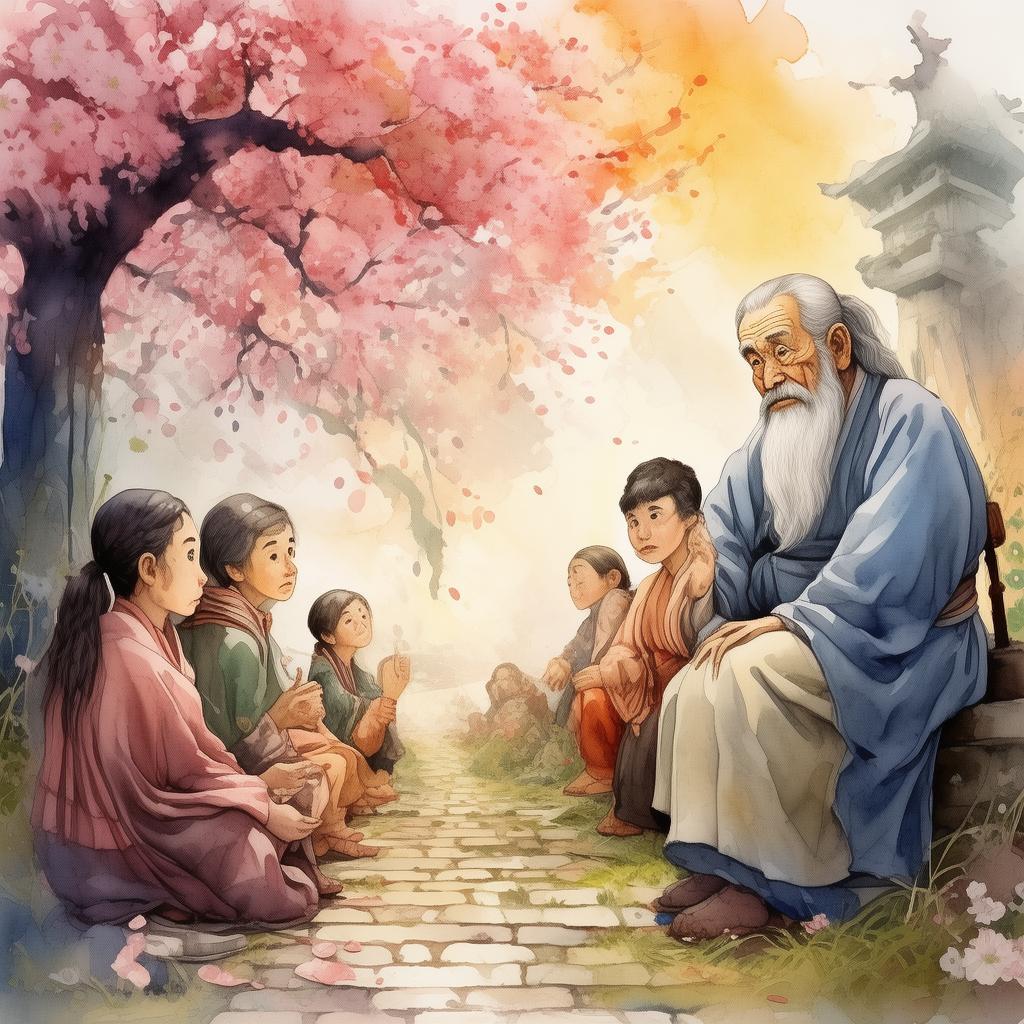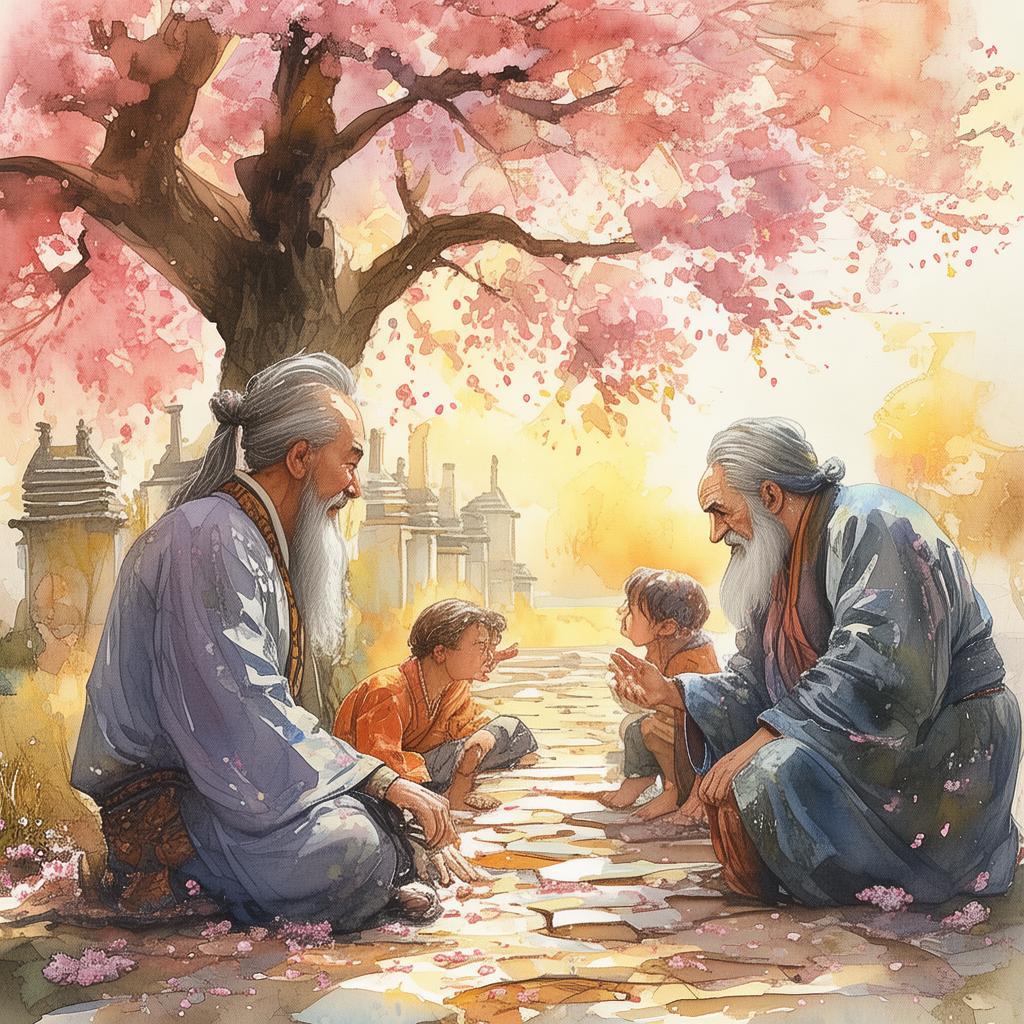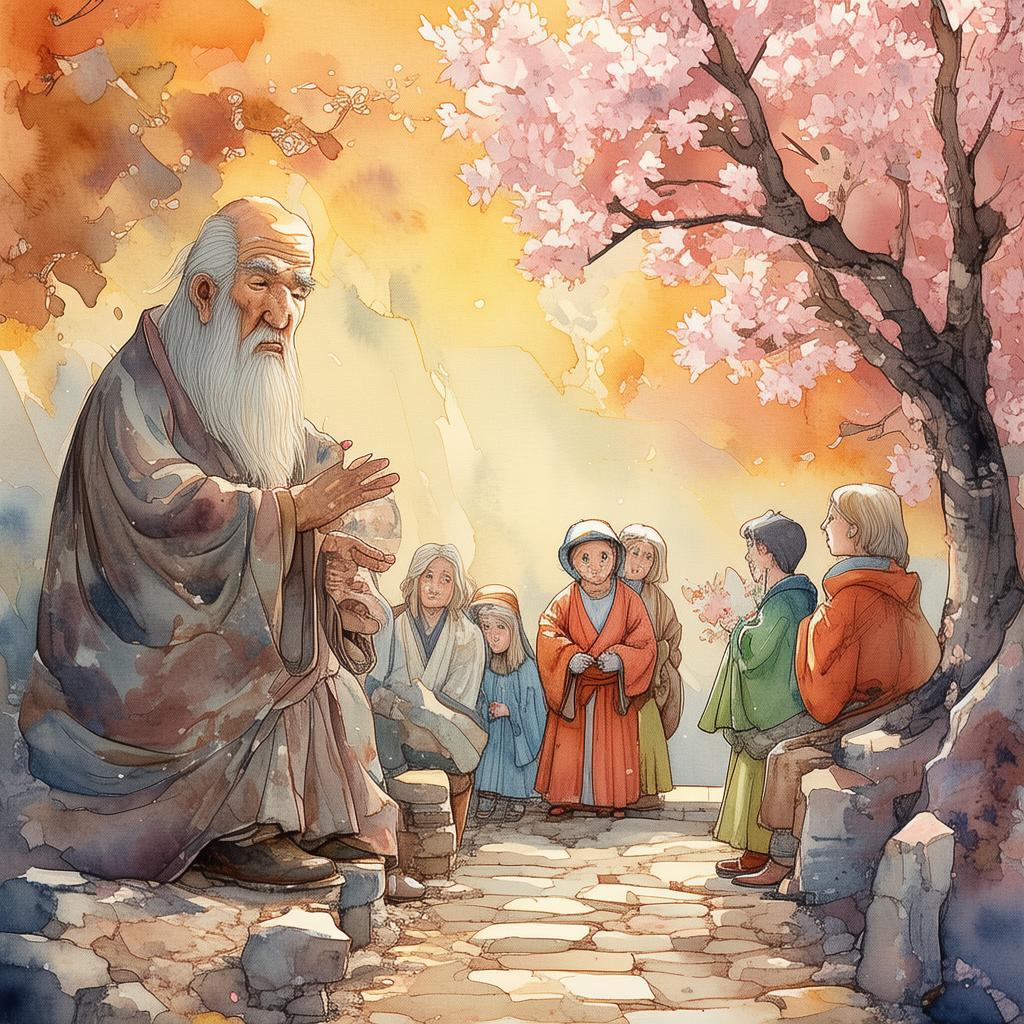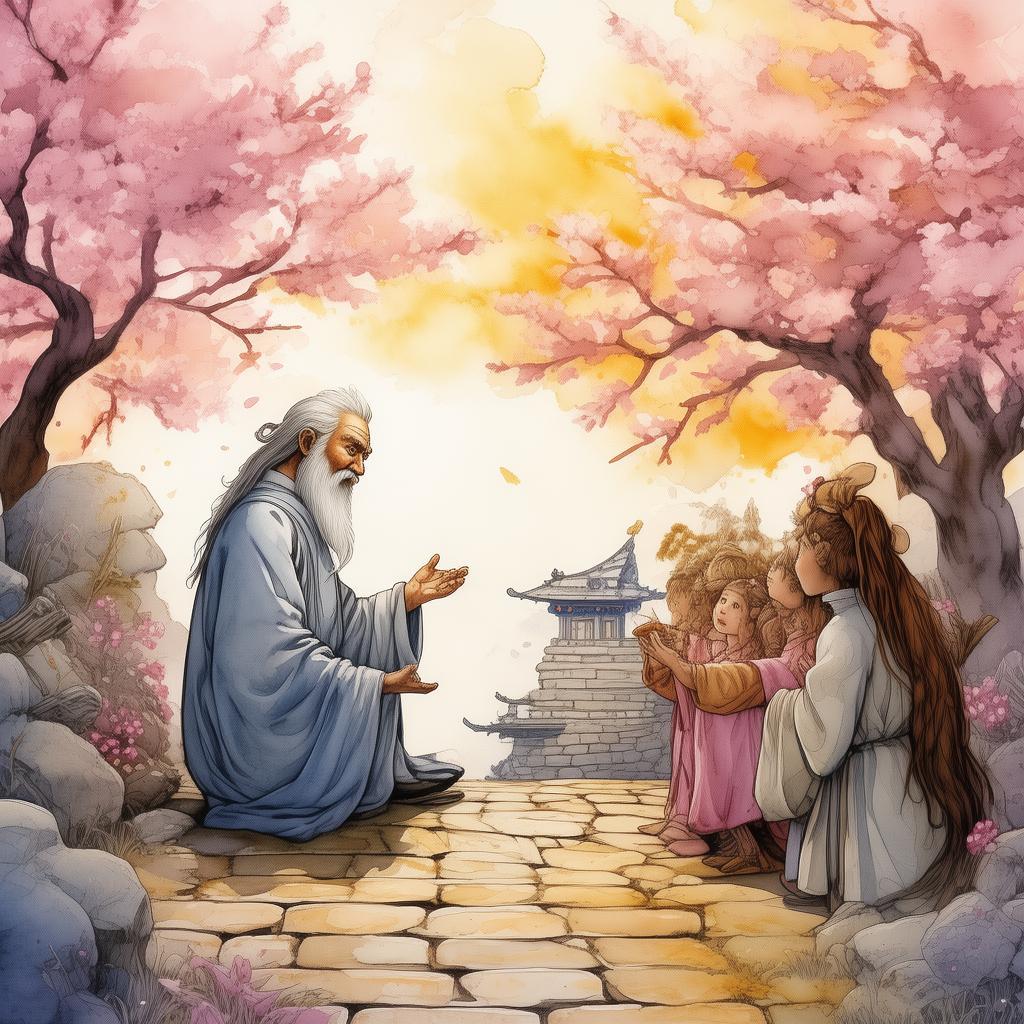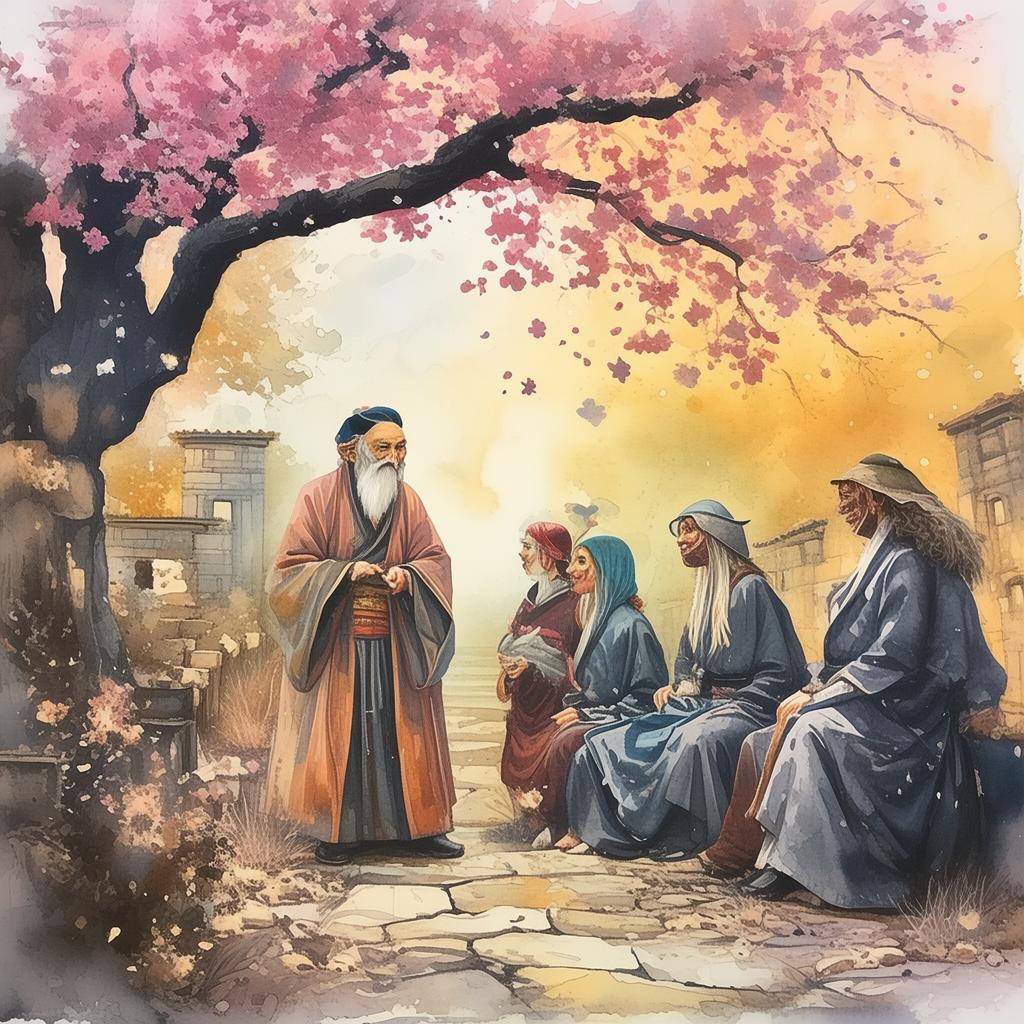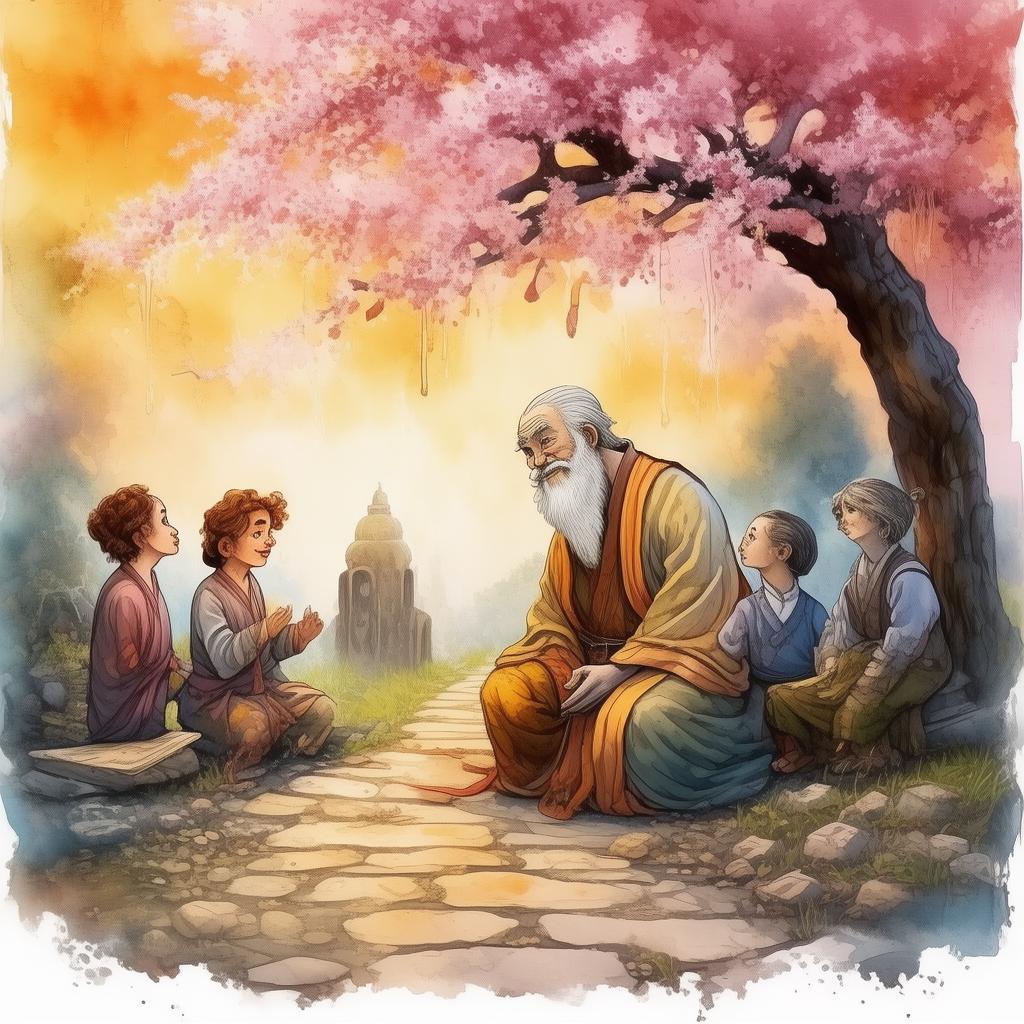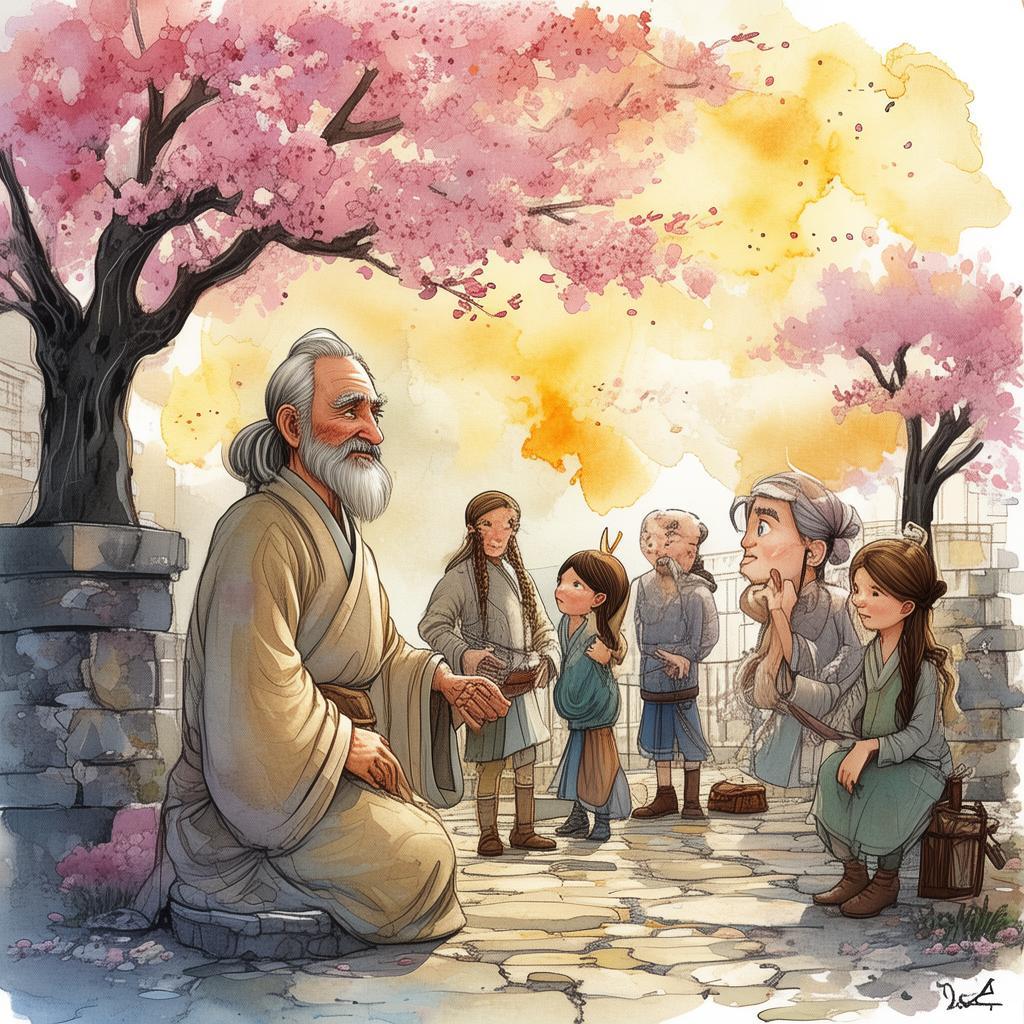The Labyrinth of the Words: A Journey to the Heart of Wisdom
In the heart of an ancient city, shrouded in the mists of time, there lay a forgotten library, its walls inscribed with words that danced with the shadows. These were no ordinary words; they were idioms, each a riddle wrapped in a conundrum, waiting to be unraveled by one who dared to seek the truth within them. Among the scholars of the city, there was a legend that whispered of the Labyrinth of the Words, a place where the idioms were not merely words but gateways to profound wisdom.
A young scholar named Li, with a mind as sharp as a knife and a spirit as bold as a warrior, heard of this labyrinth. He was driven by a desire to understand the essence of the world, to find the core of all knowledge. With a scroll of idioms in hand, Li set out on a journey that would change his life forever.
The labyrinth was a vast maze, its corridors lined with walls that seemed to shift and change with every step. Each idiomatic phrase was a puzzle, a riddle that Li had to solve. The first was simple enough, "A stitch in time saves nine," but as he delved deeper, the puzzles grew more complex, each requiring a different piece of the puzzle that Li had to find.
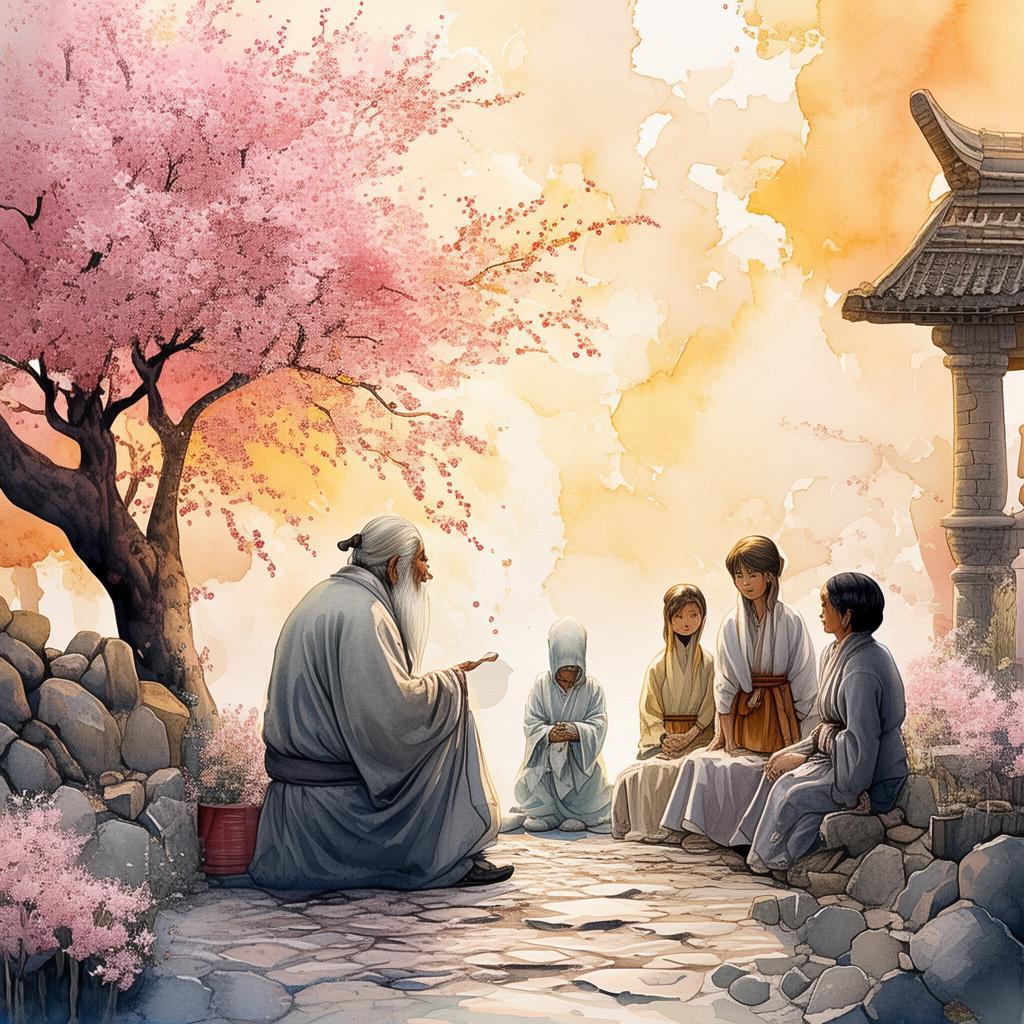
In the depths of the labyrinth, Li encountered the idiom "A wolf in sheep's clothing," which he deciphered as a warning against appearances. As he followed the path, he was suddenly ambushed by shadows that seemed to mock him, whispering words that contradicted everything he knew. It was here that he learned the importance of discernment.
As the labyrinth twisted and turned, Li met a figure cloaked in darkness, the keeper of the idioms. The keeper spoke of the idioms as not just words, but as reflections of the human condition. "A friend in need is a friend indeed," the keeper intoned, and Li understood that true friendship was to be valued above all else.
The journey was not without its trials. Li faced the idiom "The pot calling the kettle black," which tested his own humility. He had to admit his own flaws before he could continue. As he moved on, he encountered "The apple of my eye," which taught him the value of love and loyalty.
With each idiom solved, Li felt his understanding of the world grow. The labyrinth, once a daunting maze, became a place of enlightenment. He learned that "A bird in the hand is worth two in the bush," and that sometimes the simplest choices were the wisest.
But the labyrinth was not without its dangers. The idiom "The grass is greener on the other side" led him to a dangerous precipice, and it was only by reflecting on his own experiences that he realized the value of the life he had.
The journey reached its climax with the idiom "The early bird catches the worm." Li had to make a choice: to continue deeper into the labyrinth or to return to the surface. He chose to return, realizing that the wisdom he sought was not to be found in the labyrinth, but in the world he lived in.
As Li emerged from the labyrinth, the city seemed different. He saw the idioms not as riddles, but as lessons, and the world around him as a place rich with meaning. He had found the heart of wisdom, not in the labyrinth, but in the journey itself.
The young scholar returned to the city, his eyes alight with newfound understanding. He shared his experiences with others, and soon the city was abuzz with discussions of the Labyrinth of the Words. Li became a teacher, sharing the wisdom he had gained, and the idioms that had guided him.
The Labyrinth of the Words was no longer a place of mystery, but a symbol of the journey to wisdom. And Li, with his heart full of knowledge and his spirit unbroken, continued to teach, to learn, and to live the idioms he had once sought to understand.
The end.
✨ Original Statement ✨
All articles published on this website (including but not limited to text, images, videos, and other content) are original or authorized for reposting and are protected by relevant laws. Without the explicit written permission of this website, no individual or organization may copy, modify, repost, or use the content for commercial purposes.
If you need to quote or cooperate, please contact this site for authorization. We reserve the right to pursue legal responsibility for any unauthorized use.
Hereby declared.
